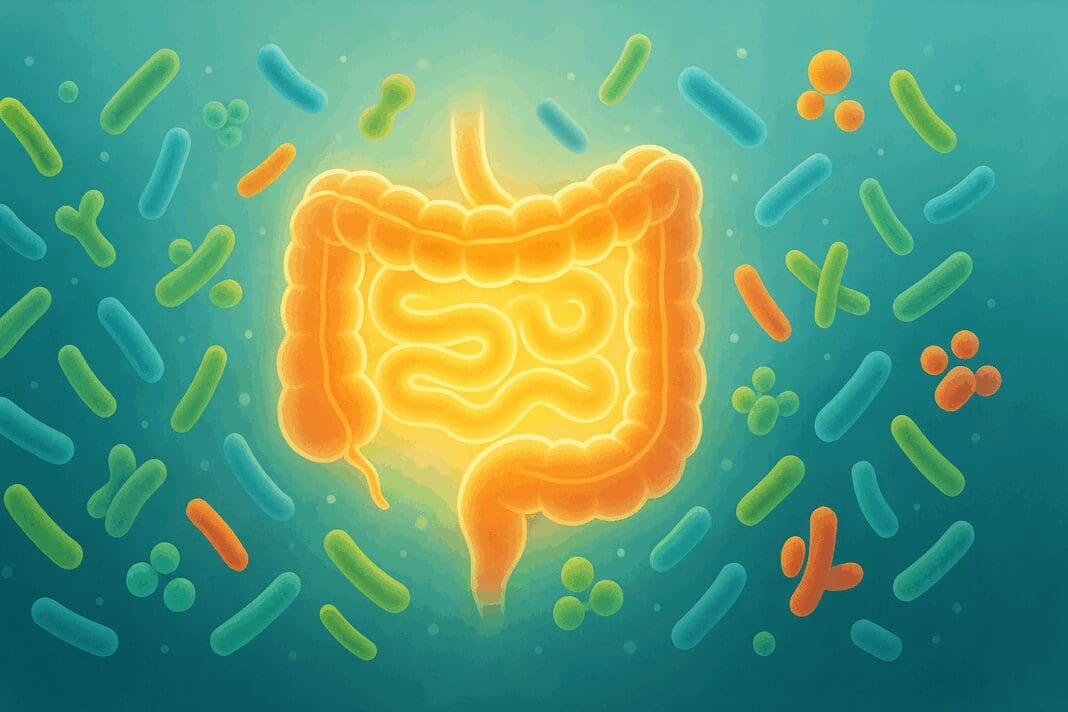Understanding the Role of Probiotics in Digestive Health
Probiotics have become a cornerstone of modern approaches to digestive wellness, but for many, the question remains: how do you know if probiotics are working? This inquiry is far from trivial. The effectiveness of probiotics—live microorganisms that confer health benefits when consumed in adequate amounts—depends on numerous variables including strain specificity, gut microbiome composition, diet, lifestyle, and even stress levels. While advertising often portrays probiotics as quick fixes for bloating or irregularity, the biological reality is far more nuanced and deeply interconnected with your entire gastrointestinal ecosystem.
Unlike pharmaceutical interventions that yield observable outcomes in a defined window, the impact of probiotics tends to be gradual and subtle, yet highly significant over time. They modulate immune function, regulate bowel movements, help produce vital nutrients, and reinforce the gut barrier to protect against pathogens. However, determining whether they are truly benefitting your body requires more than anecdotal observation. It involves recognizing physiological cues and assessing your body’s holistic responses over a period of weeks or even months.
This article explores seven critical signs that indicate whether your probiotics are doing their job. Along the way, we’ll delve into the intricacies of gut-brain communication, microbiome diversity, stool patterns, inflammation markers, and nutrient absorption. These insights not only answer the central question—how do you know if probiotics are working—but also align with the broader themes of gut health and nutrition, supporting informed decisions about supplement use in everyday wellness practices.
You may also like: Essential Steps on How to Rebuild Gut Microbiome for Better Digestive Health
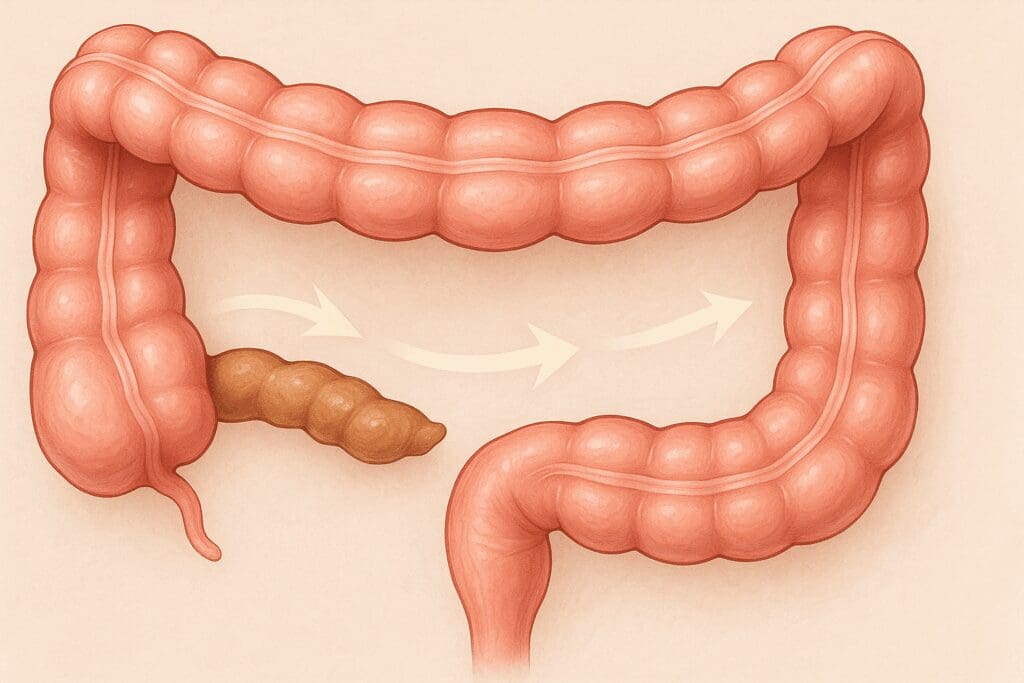
Improved Bowel Regularity: A Foundational Indicator
Among the most immediately noticeable signs that a probiotic supplement is yielding results is a change in bowel habits—specifically, improved regularity and stool quality. For individuals struggling with chronic irregularity, bloating, or sluggish digestion, probiotics often introduce a form of balance. Notably, specific strains such as Bifidobacterium lactis and Lactobacillus rhamnosus have been shown in clinical trials to enhance intestinal motility and reduce constipation symptoms. As these strains take hold in the gut, they begin to interact with the mucosal lining and stimulate peristalsis—the wave-like contractions that move food through the digestive tract.
This naturally raises another question often asked by those beginning supplementation: do probiotics help you poop? In many cases, yes. By enhancing microbial diversity and restoring a more favorable balance of bacteria, probiotics facilitate smoother and more complete bowel movements. This improvement is not merely anecdotal; it is supported by a growing body of research, particularly in populations with functional gastrointestinal disorders like irritable bowel syndrome (IBS). In such cases, stool frequency, consistency, and urgency tend to normalize over time, reducing both constipation and diarrhea episodes.
So does a probiotic make you poop? The answer depends on several factors, including the specific strain used, dosage, and your baseline gut condition. However, individuals who notice a consistent improvement in bowel movements within the first two to four weeks of use can often interpret this as an early sign that the probiotic is exerting its intended effect. It is worth noting that some users may initially experience loose stools, a result of microbial turnover and adjustment, which typically stabilizes with continued use. Monitoring this progression is critical when evaluating how to tell if probiotics are working in your system.

Reduction in Bloating and Digestive Discomfort
One of the more subtle yet significant signs probiotics are working lies in the reduction of post-meal bloating and digestive unease. For many people, this type of discomfort arises from imbalanced gut flora that ferment undigested carbohydrates, producing excessive gas and inflammation. Probiotics help mediate this effect by outcompeting gas-producing bacteria and enhancing the breakdown of complex nutrients, thereby reducing fermentation-related bloating.
But how do you know if probiotics are working when bloating can be intermittent and affected by numerous dietary and lifestyle factors? The key is to observe patterns over a period of several weeks. If meals that previously triggered discomfort now feel more digestible and leave less abdominal distention, that shift may be attributable to probiotic action. Furthermore, the persistence of benefits even after occasional dietary indulgences—such as high-fat meals or dairy intake—suggests that the gut microbiota is stabilizing in a favorable direction.
Probiotic strains such as Lactobacillus acidophilus and Saccharomyces boulardii are particularly effective in this regard, as they modulate the intestinal environment to reduce inflammation and enhance barrier integrity. By reinforcing the mucosal lining, they help prevent the leakage of irritants into the bloodstream, which can cause systemic inflammatory responses. This is particularly important for individuals with leaky gut syndrome, where the protective barrier is compromised.
For those evaluating whether probiotics loose stool patterns early on, it’s important to distinguish between temporary adaptation and ongoing dysfunction. If your stool consistency evens out after the initial few days of supplementation, it’s a strong indicator that your body is responding positively and recalibrating digestive processes.
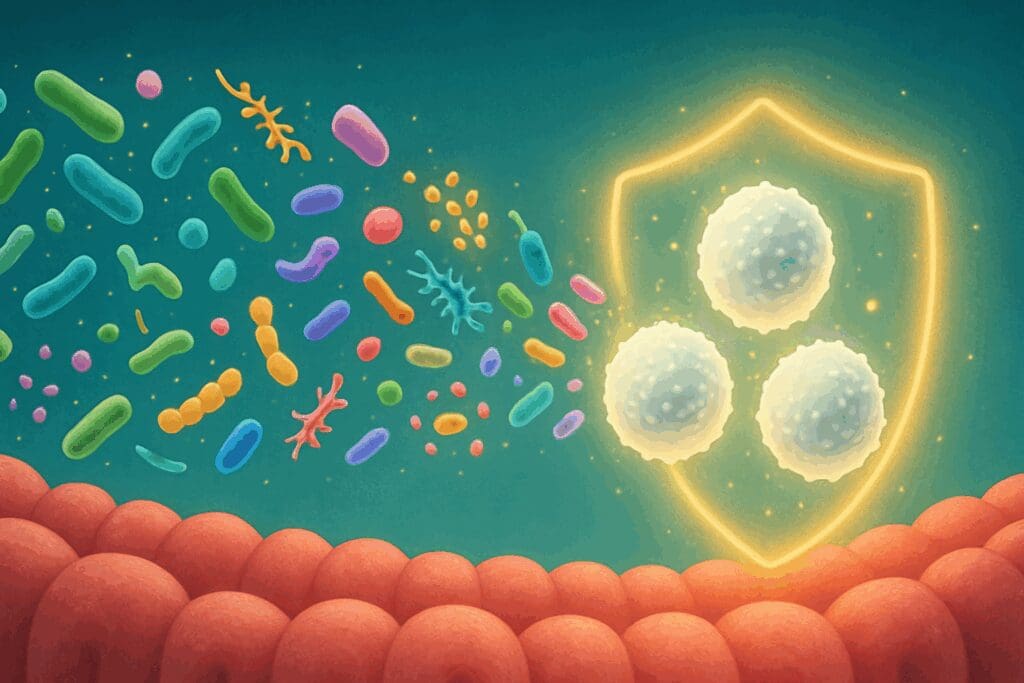
Enhanced Immunity and Decreased Frequency of Illness
A lesser-known benefit of probiotic supplementation lies in its capacity to support immune function—a feature that becomes increasingly noticeable over time. Roughly 70% of the immune system is housed in the gut-associated lymphoid tissue (GALT), meaning that your gut health is intimately tied to your body’s ability to fend off infections and regulate inflammatory responses. Probiotics play a crucial role in this process by interacting with immune cells, promoting the production of anti-inflammatory cytokines, and enhancing the function of regulatory T-cells.
So how does this manifest in real life? You may begin to notice a decrease in the frequency and severity of colds, flus, or other minor infections. If you’re someone who previously fell ill multiple times per season, a newfound resilience could signal that your immune system is being positively modulated by probiotics. This is one of the most valuable answers to the broader question of how to tell if probiotics are working, as immune resilience is a systemic marker of biological balance.
Additionally, individuals with autoimmune conditions or chronic inflammation may find that probiotics help reduce flare-ups or symptoms over time. The gut microbiome influences systemic inflammation, and an improvement in symptoms such as joint pain, skin rashes, or even sinus issues could suggest that your microbial landscape is shifting in a healthier direction.
It’s worth noting that not all probiotics exert the same immunomodulatory effects. For instance, strains like Lactobacillus casei and Bifidobacterium bifidum have demonstrated immune-enhancing capabilities in both children and adults. Incorporating these into a daily routine, particularly during cold and flu season, may provide measurable benefits. Over time, the cumulative effects of improved immunity help answer the persistent question: how do you know if probiotics are working? When your defenses feel stronger and more consistent, the answer becomes clearer.
Less Constipation, More Consistency: Do Probiotics Help with Constipation?
Constipation is one of the most prevalent gastrointestinal complaints worldwide, affecting millions across all age groups. It’s no surprise, then, that many turn to probiotics in the hope of finding natural relief. But does probiotics help with constipation in a consistent, evidence-backed manner? Increasingly, the research says yes. Numerous studies have shown that certain strains of probiotics can significantly reduce transit time, improve stool consistency, and increase bowel movement frequency.
People often wonder: will probiotics help with constipation, or are they better suited for other digestive concerns? The answer depends heavily on the strain and delivery method. Strains such as Bifidobacterium lactis HN019 and Lactobacillus plantarum have shown particular efficacy in relieving chronic constipation, especially when paired with dietary fiber and adequate hydration. When these strains begin to colonize the gut, they ferment prebiotic fibers into short-chain fatty acids like butyrate, which stimulate colonic activity and water retention in the stool.
Over time, this physiological cascade promotes not only softer and easier-to-pass stools but also reduces the need for stimulant laxatives or other harsh interventions. If you notice that your bowel movements become more frequent, complete, and predictable after two to three weeks of probiotic use, it’s a good sign that your supplement is helping to resolve underlying dysbiosis and sluggish gut motility.
This also answers a related and frequently Googled question: do probiotics make you poop? While not a laxative per se, a well-matched probiotic can nudge your system into greater regularity, especially if you’ve historically suffered from constipation. The benefits extend beyond elimination itself, as reduced straining also minimizes the risk of hemorrhoids, anal fissures, and pelvic floor dysfunction. As the microbiome recalibrates, you may even experience enhanced energy levels and mental clarity—a reflection of the profound gut-brain connection.

Recognizing Systemic Improvements: Skin, Mood, and Mental Clarity
While digestion is the primary target of probiotic action, many users begin to notice changes in areas of health that may seem unrelated at first glance. Among these are improvements in skin clarity, mood stability, and cognitive function—all of which are increasingly linked to the health of the gut microbiome. When evaluating how to tell if probiotics are working, these systemic effects can offer compelling evidence of microbiome optimization.
The skin, often referred to as the “mirror of the gut,” is highly sensitive to internal inflammation and microbial imbalances. Conditions like eczema, rosacea, and acne can be exacerbated by dysbiosis or intestinal permeability. Probiotics reduce gut inflammation, support detoxification through regular bowel movements, and regulate immune responses—all of which contribute to clearer, more resilient skin. Studies have demonstrated that specific strains like Lactobacillus paracasei and Bifidobacterium breve are particularly effective in reducing inflammatory skin responses when consumed over a sustained period.
Similarly, the gut-brain axis plays a critical role in mental health. The production of neurotransmitters such as serotonin, dopamine, and GABA is significantly influenced by gut bacteria. When microbial diversity is enhanced through probiotics, users often report feeling more emotionally balanced, less anxious, and more focused. These effects become more pronounced with consistent use, typically around the four- to six-week mark. This period allows for both microbial adaptation and neurochemical modulation.
This connection also offers an indirect answer to the question: how do you know if probiotics are working? If you find yourself experiencing more stable moods, greater mental clarity, and even improved sleep patterns, it’s a strong indication that your gut-brain axis is benefiting from probiotic support. These improvements often occur alongside digestive benefits, reinforcing the holistic nature of microbiome health.
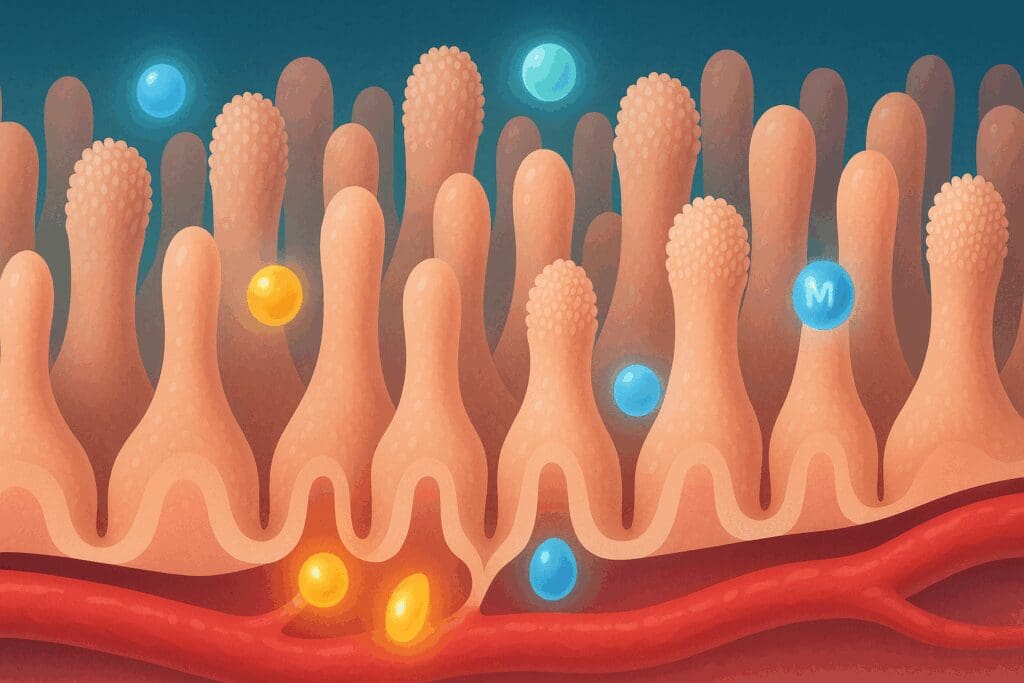
Tracking Digestive Efficiency Through Nutrient Absorption
Another vital sign that your probiotics are doing their job is an improvement in nutrient absorption and overall digestive efficiency. Many individuals unknowingly suffer from suboptimal nutrient uptake due to imbalanced gut flora, which can impede the breakdown and assimilation of essential vitamins and minerals. This is particularly true for nutrients like vitamin B12, vitamin K, magnesium, and iron, which depend on a healthy gut lining and a diverse microbial environment for proper absorption.
One of the lesser-known yet profoundly important roles of probiotics is their contribution to enzyme production. Certain strains facilitate the synthesis of digestive enzymes such as lactase, protease, and lipase, which aid in the breakdown of complex food molecules. This enzymatic assistance not only reduces symptoms like bloating, gas, and indigestion but also allows for more complete digestion—resulting in greater energy and reduced nutrient deficiencies.
So how do you know if probiotics are working in terms of nutrient uptake? You might notice signs like improved hair and nail strength, reduced cravings (especially for sugar or carbohydrates), fewer episodes of fatigue after meals, or less frequent muscle cramps. These signs suggest that your body is extracting more usable energy and micronutrients from the food you consume.
For individuals with known malabsorption issues—such as those with celiac disease, Crohn’s, or small intestinal bacterial overgrowth (SIBO)—a targeted probiotic protocol may be essential to recovery. By gradually restoring microbial harmony, probiotics help repair the intestinal lining and reduce inflammation, two prerequisites for efficient nutrient absorption. This improvement may be slow but is ultimately transformative, underscoring one of the most foundational answers to the question of how to tell if probiotics are working.
Monitoring Stool Changes: Will a Probiotic Make You Poop?
The condition of your stool is one of the most tangible indicators of digestive health and, by extension, the effectiveness of your probiotic regimen. While this may not be the most glamorous topic, the color, consistency, and frequency of your bowel movements provide a direct window into your gastrointestinal status. For those wondering will a probiotic make you poop, stool changes offer clear, measurable feedback.
Initially, some individuals may experience loose stools or increased urgency. This is often temporary and should not be mistaken for a negative reaction. Rather, it’s the body’s way of adjusting to microbial changes and expelling residual toxins or pathogenic organisms. Over time, as the gut flora stabilizes, these symptoms typically give way to more consistent, well-formed stools that are easier to pass.
It is equally important to assess the presence of undigested food particles, overly dark or pale stools, and any accompanying discomfort. Positive changes in these areas often correlate with improved enzyme function and bacterial balance, indicating that the probiotic is fostering a more robust digestive environment.
So do probiotics help with constipation or create the opposite effect? Interestingly, they can do both—depending on what your body needs. For someone suffering from constipation, the introduction of beneficial bacteria often triggers an increase in bowel movements, while someone with loose stool may experience more form and control. The ability of probiotics to normalize either extreme is a testament to their regulatory power.
Stool normalization is also one of the clearest answers to the persistent question: does probiotics help you poop? If you’re experiencing more satisfying and complete eliminations without the need for fiber supplements or stimulants, it’s a reliable sign that your digestive system is responding favorably. This alone can significantly enhance quality of life and reduce dependence on over-the-counter remedies.
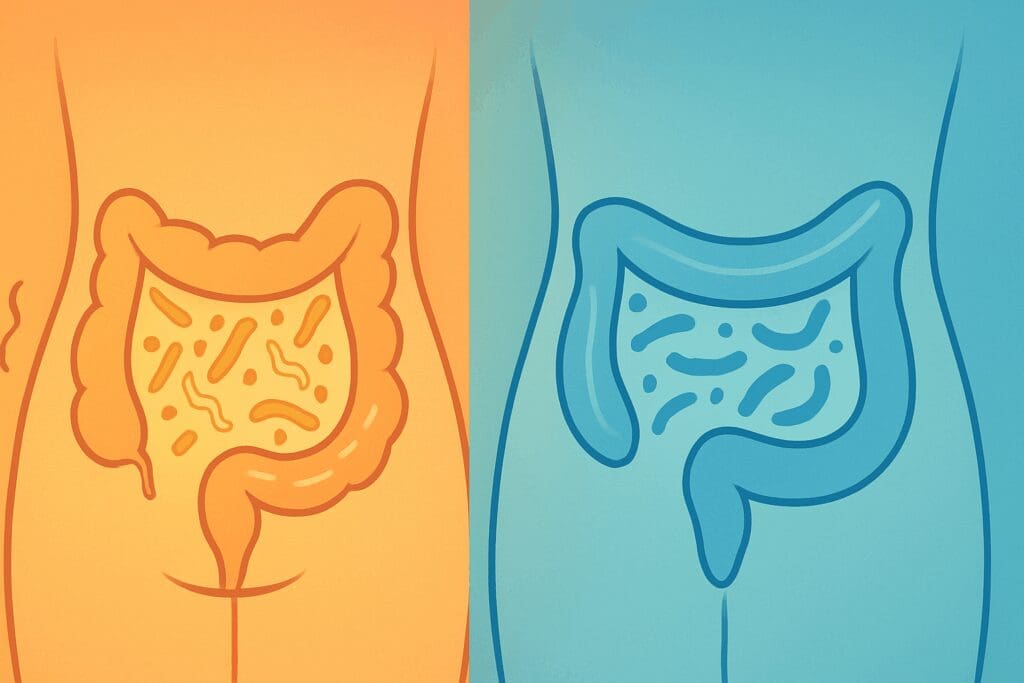
Probiotics Loose Stool and the Adjustment Period
For some individuals, the first few days of taking a new probiotic may lead to softer or more frequent bowel movements—a phenomenon that understandably raises concern. Is this a side effect, or a normal part of the adjustment process? In most cases, probiotics loose stool patterns occur because the gut is undergoing microbial turnover. This means old, less beneficial bacteria are being replaced or outcompeted by new, health-promoting strains.
This transition phase, sometimes referred to as the “die-off” period, can include symptoms like cramping, gas, or diarrhea. However, these signs are generally temporary and should subside within a week or two. The key is to monitor whether these changes are accompanied by other improvements such as reduced bloating, better energy, and more stable moods. If so, you’re likely on the right track.
It’s crucial not to interpret every loose stool as a negative response. In fact, when managed properly—with adequate hydration and a consistent dosing schedule—it can serve as a useful indicator that the probiotic is actively reshaping your gut environment. Of course, if symptoms persist beyond a few weeks or are particularly disruptive, it’s worth consulting a healthcare provider to explore alternative strains or dosages.
This temporary period of adjustment often confuses individuals trying to understand how to tell if probiotics are working. Remember that the gut microbiome is a complex and dynamic system; like any biological transformation, it requires time, consistency, and patience. The early appearance of loose stool should not discourage you from continuing the regimen—especially if long-term goals include improved digestion, immunity, and metabolic health.
How Do You Know If Probiotics Are Working for Long-Term Gut Health?
Beyond the early signs of improved digestion and immunity, one of the most rewarding aspects of probiotic supplementation is its cumulative effect on long-term gut health. But how do you know if probiotics are working in a sustained, meaningful way? The answer lies in both tangible and intangible markers—improved food tolerance, greater energy, fewer mood swings, and resilience against stress-related gastrointestinal symptoms.
Many users report that they can now eat foods that previously caused discomfort—such as dairy, gluten, or cruciferous vegetables—without experiencing gas, bloating, or cramps. This increased tolerance indicates a more diverse and adaptable microbiome, capable of processing a wider array of foods. Over time, this leads to a more enjoyable and nutritious diet, which in turn feeds the very bacteria that contribute to your wellbeing.
Moreover, the ability to weather stressful periods without gastrointestinal flare-ups is a clear sign of microbial resilience. The gut-brain axis ensures that psychological stress has a direct impact on digestive health. A well-balanced microbiome acts as a buffer, producing calming neurotransmitters and reducing the cortisol-induced inflammatory response.
As you accumulate months of probiotic use, the signs become even more subtle and foundational. You may find that you no longer need to rely on antacids, fiber supplements, or laxatives. Your immune system functions more smoothly, with fewer days lost to illness. Even skin conditions like acne or eczema may fade into the background. These changes, while gradual, point to a microbiome that is functioning in harmony with your body—a powerful confirmation that your probiotics are indeed working.
Frequently Asked Questions: Understanding the Deeper Benefits and Signs Probiotics Are Working
How do you know if probiotics are working when results aren’t immediately noticeable?
When results aren’t immediately obvious, there are still subtle physiological cues that can indicate your probiotics are making a difference. One of the most telling early signs is a general sense of internal balance—less digestive unpredictability, fewer midday crashes, and an overall smoother rhythm in your day-to-day well-being. Improvements in sleep quality, reduced sugar cravings, and even better hydration levels may also signal the probiotics’ systemic influence. If you’re tracking health trends over weeks or months, you may notice fewer food intolerances or a gradually increasing tolerance to fibrous vegetables or dairy. These slow, cumulative changes reflect the long-term, adaptive nature of gut microbiota health and are reliable indicators of progress, especially when asking how do you know if probiotics are working.
Can probiotics help with constipation even when other interventions have failed?
Yes, especially when conventional remedies like fiber supplements or dietary changes haven’t produced lasting results. Chronic constipation is often rooted in an imbalanced or underperforming gut microbiome, which hampers motility and weakens stool formation. Probiotics contribute beneficial bacteria that produce short-chain fatty acids and influence neuromuscular coordination in the colon. In patients with slow transit constipation, targeted strains like Bifidobacterium lactis or Lactobacillus plantarum can stimulate peristalsis more effectively than bulk-forming laxatives. If traditional methods haven’t yielded improvement, introducing a clinically studied probiotic strain may provide a breakthrough solution and validate that probiotics help with constipation in challenging cases.
How to tell if probiotics are working for mental clarity and stress resilience?
Beyond digestive metrics, you can evaluate probiotic effectiveness by assessing changes in mental sharpness, stress response, and mood variability. A well-functioning gut supports neurotransmitter synthesis, including serotonin and GABA, which regulate sleep, focus, and calmness. If you notice a sharper ability to concentrate, fewer “brain fog” moments, and quicker recovery from emotional stressors, those are subtle yet powerful signs probiotics are influencing the gut-brain axis. People working in high-pressure roles often report more stable cognitive output and less reactive moods after regular probiotic use. These improvements might take 4–8 weeks to become apparent, but they are a critical component when evaluating how to tell if probiotics are working.
Why do some people experience probiotics loose stool at the start?
A period of probiotics loose stool may reflect temporary microbial rebalancing rather than dysfunction. When new probiotic strains enter your system, they often compete with existing microbes and can accelerate digestive turnover. This can trigger looser stools, mild gas, or increased urgency, especially if you had a high burden of harmful bacteria or yeasts. These symptoms usually resolve within one to two weeks and may indicate your gut is eliminating old waste and adapting to improved microbial diversity. To reduce discomfort during this adjustment phase, start with a lower dose or opt for a multi-strain formula with gentle delivery technology.
Does a probiotic make you poop even if you’re not constipated?
It can, but the effect is usually regulatory rather than excessive. For people without constipation, a quality probiotic will often refine stool consistency rather than increase frequency significantly. In these cases, the probiotic may reduce minor straining, flatten bloat cycles, and make bowel movements more predictable. The action is not laxative-based; instead, it normalizes hydration in the colon and supports more complete evacuation. So, while the answer to does a probiotic make you poop might be yes, it’s more about optimizing your body’s natural rhythm than forcing a result.
How do you know if probiotics are working for long-term digestive balance?
One of the clearest indicators is reduced sensitivity to diet fluctuations. If you can eat a broader range of foods without immediate gastric repercussions—such as gassiness, bloating, or fatigue—it suggests your microbiome is becoming more adaptive. Additionally, long-term users often report greater consistency in bowel patterns, fewer inflammatory symptoms like skin flare-ups or joint stiffness, and more energy throughout the day. These signs demonstrate systemic improvements that extend far beyond the gut. In essence, when your digestive system becomes resilient to change and less reactive to stress or indulgences, that’s how you know if probiotics are working over the long haul.
Will probiotics help with constipation caused by medications or travel?
Yes, and they’re particularly useful in these scenarios. Travel-related constipation, often caused by dehydration, disrupted sleep cycles, and unfamiliar foods, can be alleviated by taking probiotics before, during, and after a trip. Similarly, medications like opioids or certain antidepressants can slow gut motility. In such cases, probiotics help restore balance by modulating intestinal pH, reducing inflammation, and supporting the gut-brain axis that governs peristalsis. Many frequent travelers and chronic medication users keep a high-quality, shelf-stable probiotic on hand for precisely this reason. These contexts highlight how probiotics help with constipation that is situational rather than chronic.
What are uncommon signs probiotics are working that most people overlook?
Beyond bowel regularity, uncommon but valuable signs include improved breath odor, reduced skin breakouts, and fewer sugar cravings. When the gut microbiota shifts toward a healthier balance, oral bacteria and skin flora also benefit due to systemic microbial communication. You might also find that your post-exercise recovery is faster, thanks to probiotics’ anti-inflammatory properties. Some users report greater temperature stability (fewer hot flashes or chills) and more balanced appetite regulation. These signals might not be as obvious as stool changes, but they are compelling indicators of deeper probiotic activity in the body.
Will a probiotic make you poop every day, or just regulate what’s already normal?
It’s more accurate to say that a probiotic will help your body find its natural elimination rhythm, not necessarily force daily bowel movements. Daily pooping isn’t a universal benchmark—some healthy individuals go every other day. What probiotics do is help your system reach regularity that feels effortless and complete. If your baseline is irregularity, probiotics may nudge you toward once-daily movements. If you already go regularly but with minor issues like incomplete evacuation or variable consistency, probiotics can smooth out those inefficiencies. So, while it’s tempting to ask will a probiotic make you poop daily, the more accurate outcome is optimal, personalized regulation.
How do you know if probiotics are working for your immune system and inflammation?
The connection between gut flora and immunity is profound but often misunderstood. One practical way to assess this is by monitoring your frequency of colds, sinus infections, or unexplained fatigue. If these become less frequent or resolve more quickly, your gut-immune axis is likely functioning more efficiently. Additionally, those with inflammatory conditions such as seasonal allergies or autoimmune flares may experience fewer and milder episodes after steady probiotic use. The gut’s ability to train immune cells through exposure to beneficial bacteria is a foundational part of long-term health. So if you’re feeling generally more resilient and less reactive to allergens or pathogens, it’s another valid answer to how do you know if probiotics are working.
Final Reflections: Answering the Big Question with Confidence and Clarity
In the end, the question of how do you know if probiotics are working has no one-size-fits-all answer. It is a journey of observation, consistency, and self-awareness. The seven signs outlined in this article—ranging from bowel regularity and reduced bloating to enhanced immunity and mood stability—serve as guideposts on this journey. But the most important takeaway is that effective probiotic use should feel like a gradual return to equilibrium rather than a dramatic transformation.
If you’re asking will a probiotic make you poop or wondering does probiotics help with constipation, these are valid inquiries grounded in real digestive struggles. Fortunately, science increasingly affirms that targeted probiotic use can support healthier, more predictable bowel movements and reduce the need for external interventions. These benefits ripple outward, improving nutrient absorption, immune defense, and even emotional resilience.
So whether you’re looking for relief from chronic constipation or simply striving to enhance your overall well-being, probiotics can offer powerful, evidence-based support—provided you’re willing to give them the time and consistency they need to take effect. Monitor your body, keep a health journal if necessary, and be open to the subtle improvements that point to a healthier gut and a more balanced life.
Ultimately, the path to better digestion is not paved with shortcuts or miracle cures but with mindful, science-backed practices. And when you begin to notice these vital signs—more consistent stools, reduced bloating, fewer colds, clearer skin, and better moods—you’ll have your answer: yes, your probiotics are working. And they’re working exactly as nature intended.
Further Reading:
Probiotic & Prebiotic Foods for Constipation: Do They Work?
Efficacy of Probiotic Compounds in Relieving Constipation and Their Colonization in Gut Microbiota

